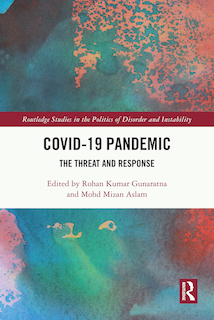TM: "Sri Lanka Struggles to Deliver Justice for Easter Sunday Terror Victims"
On April 21, amid an unprecedented economic meltdown, political turmoil, and social unrest, Sri Lanka observed the third anniversary of the Islamic State (IS)-claimed Easter Sunday terror attacks. To mark the occasion, President Gotabaya Rajapaksa promised once again to punish those behind the carnage that killed 260 people and injured over 500, who were mostly Christian worshippers at Easter services, foreign nationals, and tourists in hotels. Rajapaksa reiterated his government’s commitment to ensure justice for all the victims of the Easter terror attacks.




